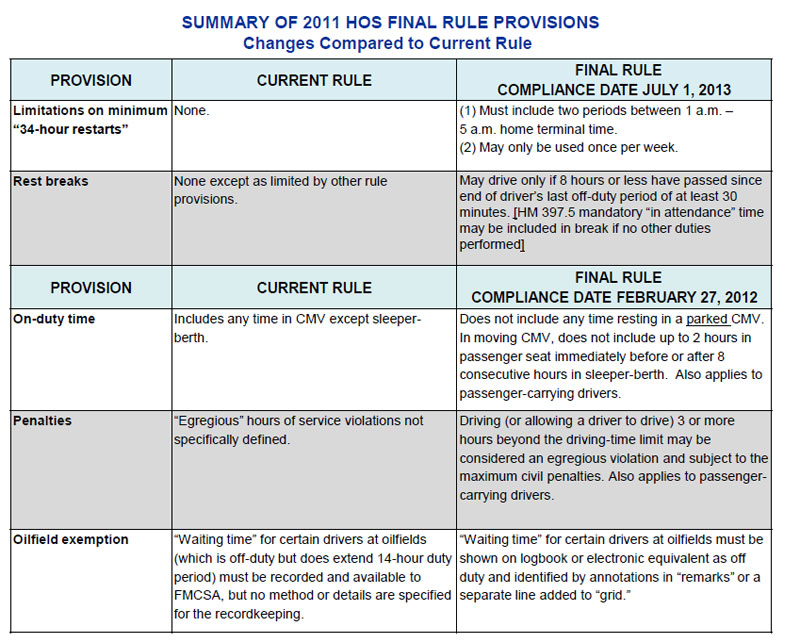From SCDigest's On-Target E-Magazine
July 25, 2012
Logistics News: ATA Decides to Challenge Hours of Service Changes in Court
Suit Says FMCSA's Cost-Benefit Analysis Supporting Changes Fundamentally Flawed and Biased
SCDigest Editorial Staff
The American Trucking Associations (ATA) has filed in Federal court to have the 2011 changes made by the Federal Motor Carrier Safety Administration (FMCSA) to the Hours of Service (HOS) rules for truck drivers ruled invalid.
SCDigest Says: |
 |
| The ATA says the FMCSA's "cost-benefit analysis is driven by irrational assumptions and unjustifiable decisions made to inflate th total benefits produced by the rule." |
|
What Do You Say?
|
|
|
|
In a brief filed July 24 with the U.S. Court of Appeals for the District of Columbia Circuit, the ATA said federal rules further restricting drivers' ability to work and drive would add tremendous cost to the economy and undue burden onto drivers while providing minimal possible safety and health benefits.
In its brief, ATA calls FMCSA's changes "arbitrary and capricious as well as unwarranted." It also says its legal action has the direct support of the Owner-Operator Independent Drivers Association (OOIDSA, the National Industrial Transportation League (NIT League), NASSTRAC, the Health & Personal Care Logistics Conference, and the Truckload Carriers Association. A variety of other trade and business associations have also filed "friend of the court" briefs supporting the ATA's case.
After having been changed in 2003, the FMCSA announced in late 2010 that it was going to revisit HOS rules, triggering a frenzy of activity against the proposed changes, which included a potential reduction daily drive time from 11 to 10 hours. Interestingly, that hour of driving time had actually been added in the 2003 rules, amid other changes that reduce driver availability. The potential changes then as in 2011 were being pushed by various consumer safety groups. (See New Hours of Service Rules Finally Announced.)
After delaying its initial schedule for releasing the changes by some three months, the FMSCA finally announced the new rules in late December of last year. Those changes did not include the feared reduction from 11 to 10 hours of driving time, though the agency later said that this issue might be revisited in the future.
The changes that were put in place are shown in the graphic below. They are not effective until July, 2013, however.

The ATA suit challenges the validity of those changes.
"The agency claims that restart restrictions and the off-duty break requirement are justified by the cost-benefit analysis in FMCSA's Regulatory Impact Analysis. That 'analysis,' however, is a sham, the brief said. "FMCSA stacked the deck in favor of its preferred outcome by basing its cost-benefit calculations on a host of transparently unjustifiable assumptions. FMCSA therefore cannot justify the 2011 final rule on the ground that it has net benefits."
There are requirements written into law that regulators most show such a net benefit for most new rules across government agencies.
The ATA continues to say the agency's "purported justifications contradict the evidence in the administrative record and require the agency to ignore, without any supporting basis, numerous positions it previously adopted."
Therefore "each of these changes must be vacated as arbitrary and capricious," the brief states.
Restart Rules at Heart of the Issue
The new rules associated with various restart provisions - when a driver can go back in duty - are at the heart of legal issues raised by the ATA suit.
The decision by the FMCSA to make those changes was supported by analysis the agency performed on accidents involving large trucks and the amount of rest and sleep drivers had experienced.
(Transportation Management Article Continued Below)
|